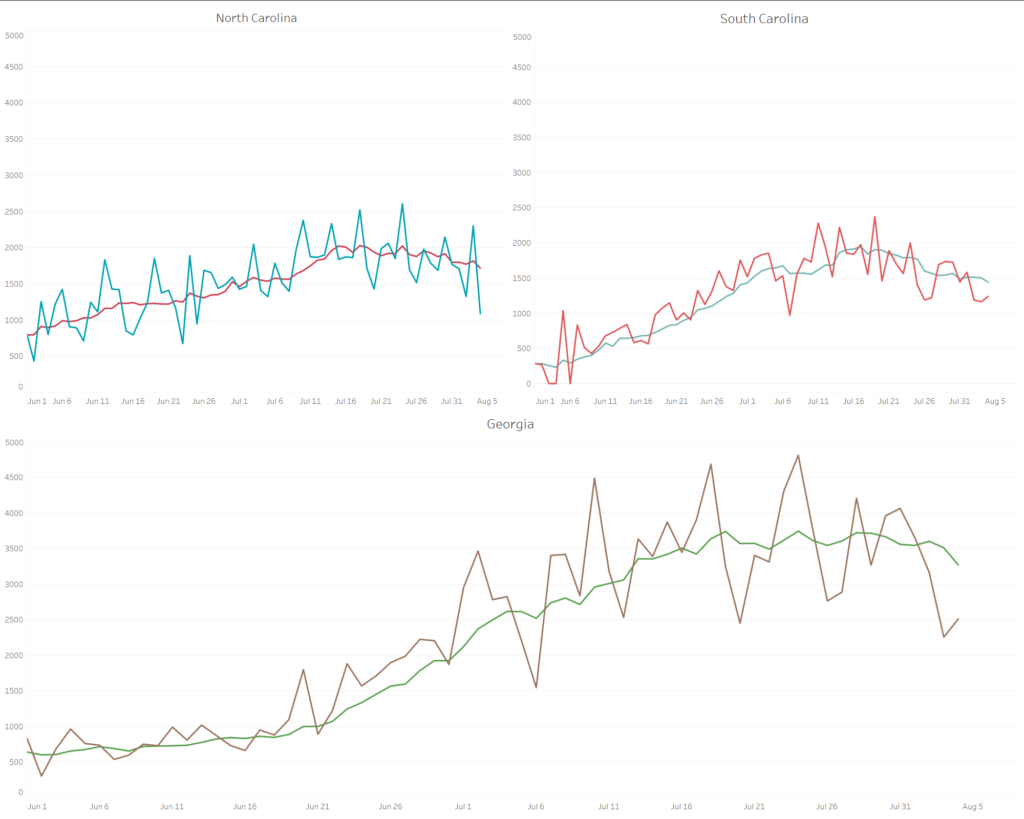
Aug. 6. Using Johns Hopkins’ data, we compared the number of new COVID-19 cases in North Carolina, South Carolina and Georgia over the same time period: June 1 to August 4. All three contiguous states appear to have either plateaued or are beginning to steadily decline in 7-day running averages.
Earlier this week, North Carolina joined a bipartisan interstate compact with six other states to increase availability of rapid testing. NC Gov. Roy Cooper said the compact demonstrates the need for a larger, national testing strategy and creates a way to collaborate on purchasing supplies.
The states are in discussions with Becton Dickinson and Quidel to purchase 500,000 tests per state. The Rockefeller Foundation has pledged to assist in facilitating financing mechanisms to support the compact.

GOV. ROY COOPER
While North Carolina and Georgia had similar daily case counts in June, Georgia saw increased case counts in the following weeks. Georgia and North Carolina have similar population sizes, North Carolina with 10.49 million and Georgia with 10.62 million; however, as South Carolina’s population is around 5.15 million, the similar case counts to North Carolina in July indicate a higher infection in South Carolina.
As the 7-day averages appear to have plateaued in the past couple of weeks, a decline in new confirmed case counts over the next few weeks is expected.
In addition to North Carolina, the seven-state compact includes Maryland, Massachusetts, Michigan, Ohio and Virginia.



